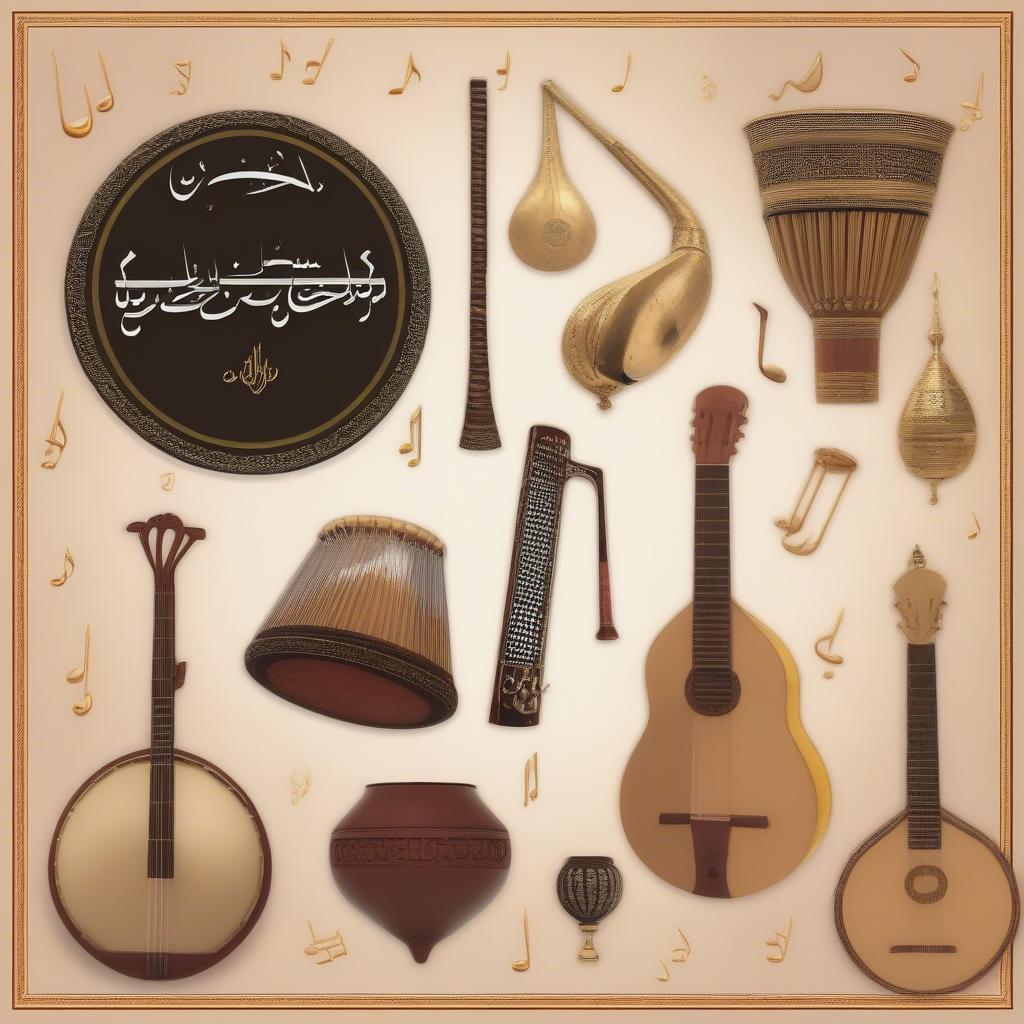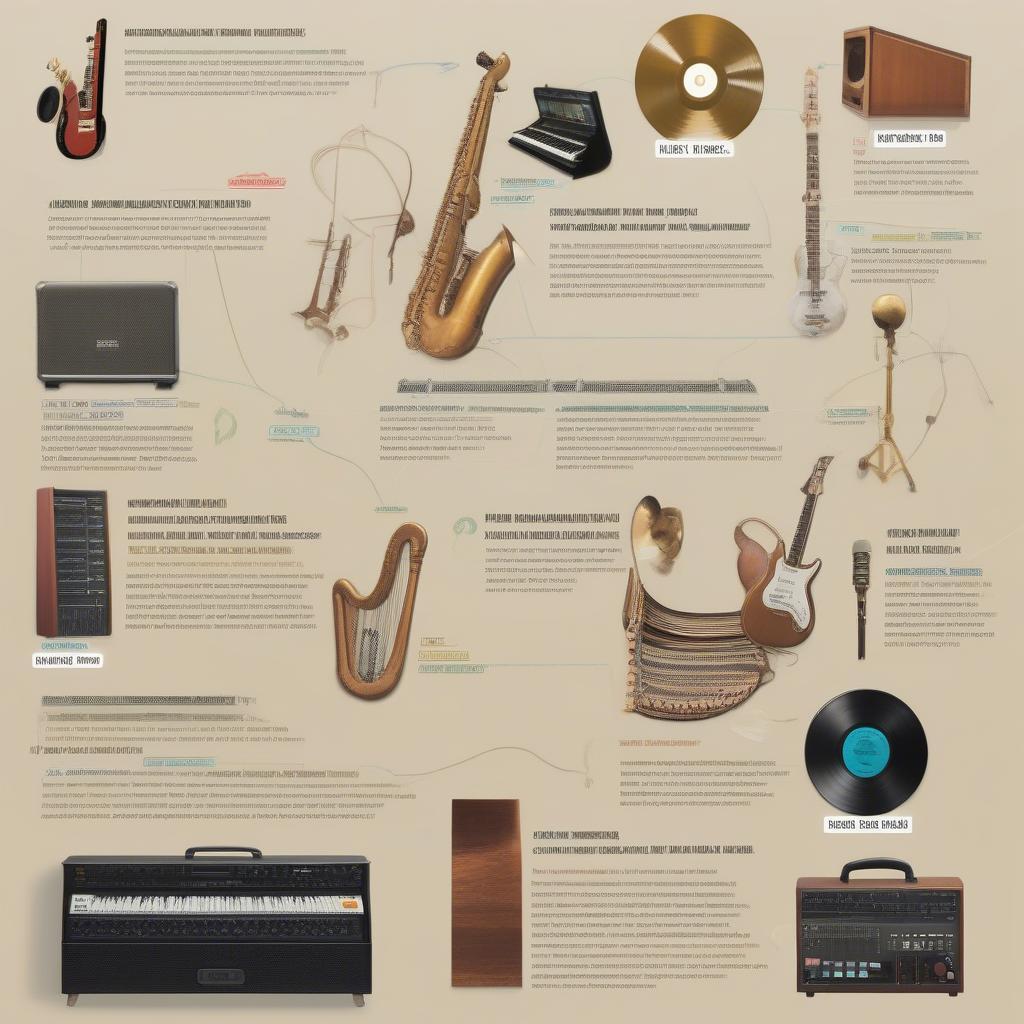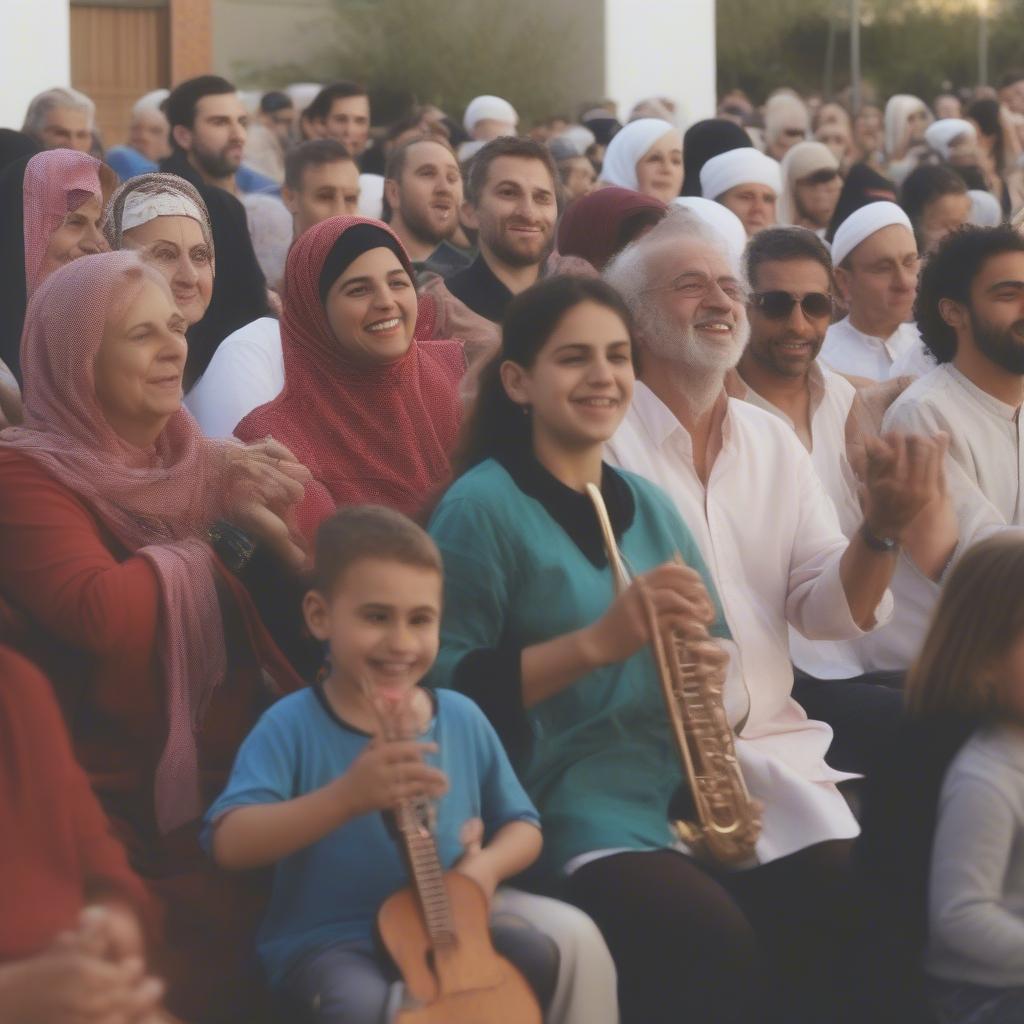The vibrant and diverse world of Arabic music offers a captivating blend of rhythms, melodies, and lyrical storytelling. From traditional folk tunes to modern pop hits, Top Arabic Songs have captivated audiences across the globe. This exploration delves into the rich tapestry of Arabic music, highlighting its cultural significance, evolution, and the enduring appeal of its top hits.
A Journey Through the Genres of Top Arabic Songs
 Top Arabic Music Genres – A Diverse Landscape
Top Arabic Music Genres – A Diverse Landscape
Arabic music encompasses a vast array of genres, each with its unique characteristics and cultural influences. From the soulful strains of classical Arabic music, often featuring the oud and qanun, to the energetic beats of modern pop and hip-hop, there’s something for every musical taste. Regional variations further enrich the landscape, with distinct styles like Khaliji music from the Arabian Gulf, known for its percussive rhythms and poetic lyrics, and Rai music from Algeria, often expressing social and political themes.
What are some popular genres of Arabic music? Well, apart from Khaliji and Rai, there’s also Shaabi, a popular form of Egyptian folk music characterized by its upbeat tempo and colloquial lyrics, often reflecting the everyday lives of ordinary people. And then there’s the ever-evolving world of Arabic pop, which constantly incorporates new influences and sounds while maintaining its distinctive Arabic flavor. This genre often features prominent artists like Nancy Ajram and Amr Diab, whose catchy melodies and modern production have earned them a massive following. For those seeking a blend of tradition and modernity, there are numerous artists who seamlessly fuse classical Arabic elements with contemporary sounds, creating a captivating musical experience.
The Evolution of Top Arabic Songs: From Traditional to Modern
 The Evolution of Arabic Music – From Oud to Electronic Beats
The Evolution of Arabic Music – From Oud to Electronic Beats
Arabic music has a rich history, dating back centuries. Traditional forms of music, often passed down through generations, are deeply rooted in the cultural and religious traditions of the region. These songs, often featuring intricate instrumentation and poetic lyrics, tell stories of love, loss, and the everyday lives of people.
Over time, Arabic music has evolved, embracing new instruments, technologies, and influences from around the world. The introduction of Western instruments and musical styles led to the emergence of new genres, such as Arabic pop and hip-hop, which have gained immense popularity in recent decades. This evolution has not only broadened the musical landscape but also helped to connect Arabic music with a wider global audience. Check out our post on 2017 hometeam new year's rally top songs by festival artists.
What factors influenced the evolution of Arabic music? The exchange of musical ideas through trade routes, cultural interactions, and the advent of recording technologies all played a crucial role in shaping the development of Arabic music. The rise of radio and television further amplified the reach of Arabic music, bringing different regional styles to a broader audience and fostering a sense of shared musical identity.
The Impact of Technology on Top Arabic Songs
Technology has revolutionized the way Arabic music is created, distributed, and consumed. Digital recording studios, music streaming platforms, and social media have empowered artists to reach a global audience and experiment with new sounds. This has led to a greater diversity of musical styles and a blurring of the lines between traditional and modern forms. Remember the 9xm top song 2016?
The Cultural Significance of Top Arabic Songs
 The Cultural Significance of Arabic Music – A Reflection of Identity and Tradition
The Cultural Significance of Arabic Music – A Reflection of Identity and Tradition
Arabic music is deeply interwoven with the cultural fabric of the Arab world. It plays a vital role in various social gatherings, celebrations, and religious ceremonies. Top Arabic songs often serve as a powerful expression of cultural identity, reflecting the values, traditions, and experiences of the people. Some popular Arabic songs have become anthems of social and political movements, giving voice to the aspirations and struggles of communities.
What role does music play in Arab culture? Arabic music is more than just entertainment; it’s a form of social commentary, a vehicle for storytelling, and a powerful expression of emotions. It brings people together, fostering a sense of community and shared identity. From weddings and festivals to religious observances and political rallies, music plays an integral role in the lives of many people in the Arab world. Do you recall the 2016 top 100 songs spotify? It’s interesting to see the trends.
“Arabic music is a universal language that transcends borders and connects people through its powerful melodies and heartfelt lyrics.” – Dr. Layla Haddad, Ethnomusicologist
Discovering Your Next Favorite Top Arabic Song
The world of top Arabic songs is vast and waiting to be explored. Whether you’re drawn to the traditional sounds of the oud or the energetic beats of modern pop, there’s a world of musical treasures to discover. You might even find your next favorite song among the top 10 best pop songs ever. Embrace the diversity of Arabic music and embark on a journey of sonic discovery. Remember the 2016 top 100 songs uk? Music truly transcends borders.
In conclusion, top Arabic songs offer a captivating blend of tradition and modernity, reflecting the rich cultural heritage and evolving musical landscape of the Arab world. From the soulful melodies of classical music to the infectious rhythms of modern pop, there’s something for everyone to enjoy in this vibrant musical tapestry.
“Top Arabic songs are a testament to the power of music to unite, inspire, and transcend cultural boundaries.” – Karim Al-Jundi, Music Producer
Need assistance? Contact us at Email: [email protected], address: Constellation Blvd, Suite 100, Los Angeles, CA 90067, USA. We have a 24/7 customer support team.
